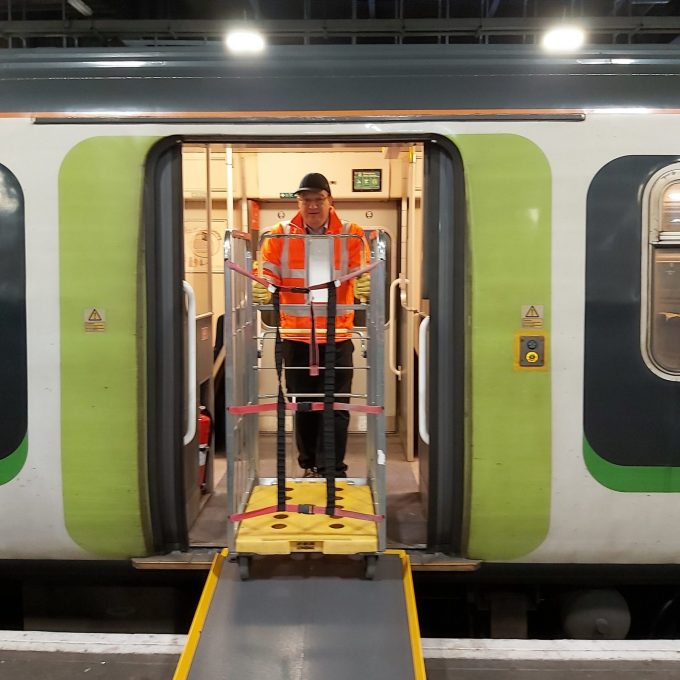News in Brief Podcast | Week 48 | Port ‘musical chairs’, rates and MSC u-turn
In this episode of The Loadstar’s News in Brief Podcast, host and news reporter Charlotte ...

The transformation of passenger transport to carry cargo has shifted modes.
UK rail freight operator GB Railfreight (GBRf) has taken a leaf out of the air cargo industry playbook and converted a commuter train to carry express freight to London.
The company recently completed a trial shipment of NHS supplies on a passenger train on the West Midlands to London route, and said that, “with minor interior modifications, it could be loaded in both dedicated freight terminals or platform side in any ...
Maersk Air Cargo sees volumes fall as it aims for 'margin in favour of revenue'
Keep our news independent, by supporting The Loadstar
Container spot rates diverge: to Europe still falling, but firmer to the US
Hapag-Lloyd won't take bookings if port congestion leaves cargo stranded
Ecommerce likely the front-runner in resurge of transpacific trade after deal
Airfreight players eye new routes as demand on the transpacific nosedives
China-US trade tariff pause could drive a rebound for transpacific rates
Service chaos from trade ban with India a problem for Pakistan shippers
Volume surge and an early peak season? 'Don't celebrate too soon,' warning
Airfreight rates ex-China 'loss-making', but hopes of a trade deal stay high
Indian coastal freight attracts major carriers, but regional tension disrupts
Serious threat to jobs in US logistics as tariffs cause economic 'stagflation'
APMM floats along on 'solid' Q1 profitability in Ocean, well prepared for choppy water
White House u-turns see freighters flying but keep logistics players on their toes
Carriers impose 'emergency operation' surcharges on Pakistan cargo
MSC in terminal switch as Nhava Sheva gets strong start to new fiscal year

Comment on this article
paul Newman
April 27, 2020 at 2:05 pmIt used to be called Red Star Parcels. Back in the day.
Andrew Sharp
April 29, 2020 at 8:41 amI thought that both East Midlands Railway and Great Western Railway carried this kind of cargo on passenger trains?